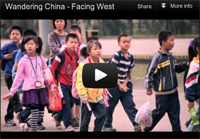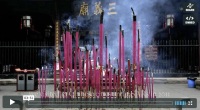Judging from my experience at the Shanghai World Expo last year, it is not a surprise that sustainable growth is a key driver for the 12th 5-Year Plan (2011-2015). The war cry is no longer about just ‘recklessly’ getting rich first. Also, the quotes below (orange infographic to the right) offer a poignant glimpse into the heart of Premier Wen Jiabao.
– – –
Premier sets 7% growth target
By Hu Yuanyuan China Daily
Source – China Daily, published February 28, 2011
Environment ‘must not be sacrificed for rapid development’

Premier Wen Jiabao chats with netizens at xinhua.net.cn on Sunday. It is the third consecutive year that the premier has conducted an online talk prior to the annual sessions of the top legislature and advisory body, scheduled for early March. Pang Xinglei / Xinhua
BEIJING – An annual growth target of 7 percent over the 12th Five-Year Plan (2011-2015) has been set to ensure sustainable development, Premier Wen Jiabao said on Sunday.
“We must not any longer sacrifice the environment for the sake of rapid growth and reckless roll-outs, as that would result in unsustainable growth featuring industrial overcapacity and intensive resource consumption,” Wen said during an online chat with Internet users.
The target was lower than the 7.5 percent set for the previous five years, when the country’s economy actually grew at an annual rate of around 10 percent from 2006 to 2010.
China’s GDP growth reached 10.3 percent last year. Most economists expect growth to be around 9 percent this year, and slightly less in 2012.
Increased efforts will be made to improve people’s living standards, and the government will adopt new performance evaluations for local governments to hasten economic restructuring.
The criterion for assessing their performance is “whether the public are happy or not … but not by how many high-rise buildings and projects he had been involved in,” Wen said.
He also promised to strengthen efforts to contain increases in prices of food and other commodities, which have stoked inflation. Maintaining price stability has always been a priority as “rapid price rises have affected people’s lives and even social stability”, he said, adding adequate grain supplies and abundant foreign exchange reserves would help curb inflation. Read the rest of this entry »
Filed under: Beijing Consensus, Charm Offensive, Chinese Model, Domestic Growth, Economics, Education, Inflation, Influence, International Relations, Lifestyle, Media, National Medium- and Long- term Talent Development Plan, Nationalism, Politics, Population, Public Diplomacy, Resources, Social, Soft Power, The Chinese Identity, The construction of Chinese and Non-Chinese identities, Trade














The Sharing Circle